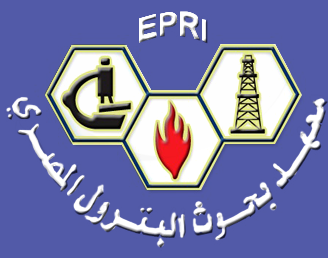Aims & Scope
Egyptian Journal of Petroleum (EGYJP) is addressed to the fields of hydrocarbon exploration and analysis including crude oil, natural gas, energy, and related subjects. It also publishes original research papers and reviews in areas relating to synthetic fuels and lubricants; pollution; corrosion; alternate sources of energy; gasification, liquefaction, and geology of coal; tar sands and oil shale; and wastes and biomass as a source of renewable energy. To meet these requirements, the Egyptian Journal of Petroleum welcomes manuscripts and review papers reporting on the state-of-the-art in the aforementioned topics. The Egyptian Journal of Petroleum is also willing to publish the proceedings of petroleum and energy-related conferences in a single-volume form.
Aim
The Egyptian Journal of Petroleum is publishing the results of research and development in the fields of petroleum science and technology. It aims to:
- Promoting the exchange of knowledge and ideas between researchers, engineers and professionals working in the petroleum industry.
- Encouraging high-quality research in all aspects of hydrocarbon exploration, production, analysis, use and benefit, while taking care to reduce environmental impacts and develop methods for energy sustainability.
- Strengthening cooperation between academia, industry and research institutions to advance the field of petroleum science and technology.
- Contributing to the development of new and innovative technologies for a more efficient and sustainable petroleum industry.
Scope
The Egyptian Petroleum Journal aims to be at the forefront of scientific journals in the fields of science and technology related to energy, especially in the oil and gas industry, and related to these topics, for example:
- Sedimentation and Petroleum Exploration: This area delves into the geological processes that form oil and gas reserves, and the emerging techniques used to locate them.
- Production: This section covers methods and techniques for extracting oil and gas from reservoirs and making use of depleted reservoirs.
- Analysis and testing: It includes the various techniques used to analyze the properties and composition of hydrocarbons and the development of new methods to study the chemical composition of oil and gas and the physical characterization of hydrocarbons.
- Petroleum and natural gas chemistry and technology: This field explores the processes used to refine them and transform them into usable, environmentally friendly products using catalysts or chemical and physical methods. These areas also address alternative applications of hydrocarbons as new and renewable sources of energy.
- Petrochemicals: This section covers various applications of petrochemicals, such as surface-active compounds, corrosion inhibitors, and the production of raw materials in the oil and gas
Topics
Specific topics covered in the journal include:
- Synthetic fuels and lubricants
- Pollution
- Corrosion
- Alternate sources of energy
- Gasification, liquefaction, and geology of coal
- Tar sands and oil shale
- Biomass as a source of renewable energy
Types of Articles
The journal welcomes submissions of papers covering Research papers, and Review Articles.







